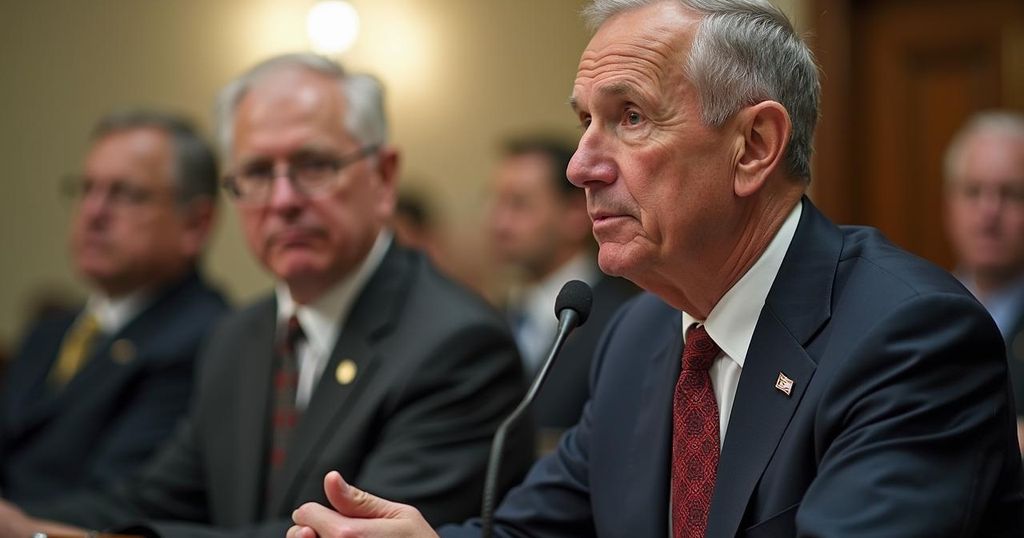House Republicans Blame Biden for Chaotic Afghanistan Withdrawal in New Report

House Republicans released a report blaming President Biden for the chaotic U.S. withdrawal from Afghanistan and minimizing former President Trump’s role. The report emerges from an extensive investigation highlighting failures leading to the Taliban’s swift takeover. It criticizes the Biden administration for inadequate planning and prioritizing appearance over security, while a White House spokesperson defends Biden’s position, linking it to Trump’s withdrawal agreement.
House Republicans released a comprehensive report on the U.S. withdrawal from Afghanistan, attributing responsibility for the chaotic exit largely to President Joe Biden’s administration while downplaying former President Donald Trump’s involvement. The report emerged from an extensive investigation that scrutinized the last months of military and civilian actions leading up to the withdrawal, which was precipitated by Trump’s 2020 agreement with the Taliban. The Republicans argue that the Biden administration failed to adequately prepare for the impending collapse of the Afghan government, leaving behind American citizens and Afghan allies vulnerable to the Taliban, which swiftly regained power before the final evacuation on August 30, 2021. Despite the depth of the report, critics, including House Democrats, noted that it does not introduce new findings, as past reviews have attributed failures to all four recent presidential administrations. Representative Michael McCaul, chairman of the House Foreign Affairs Committee, emphasized that Biden’s administration prioritized “optics over security” during the withdrawal process. In response, a White House spokesperson characterized the report as politically motivated, asserting it overlooked the ramifications of the agreement made by Trump, which put Biden in a difficult position. With extensive testimonies and document reviews constituting over 350 pages, the Republican report notably criticizes Biden’s management and decision-making process during the withdrawal, asserting it lacked sufficient consultation with military and diplomatic leaders. It further claims that the administration downplayed security threats and facilitated a disorderly exit that contradicts the strategic interests of the United States.
The investigation into the U.S. withdrawal from Afghanistan is rooted in the final months of the U.S. military presence in the country, lasting nearly two decades. After the events of September 11, 2001, the primary objective was to dismantle al-Qaeda and prevent Afghanistan from serving as a safe haven for terrorists. The withdrawal agreement between the Trump administration and the Taliban, signed in February 2020, set in motion a series of events that culminated in a rapid Taliban takeover as U.S. forces descended from 13,000 troops to approximately 2,500. The subsequent withdrawal took place in a context of systemic failures that spanned multiple administrations, drawing attention to the complications and legacies of U.S. involvement in Afghanistan. The chaotic end of the mission has raised numerous questions about leadership decisions, preparedness, and the handling of diplomatic and military resources.
In summary, the House Republicans’ report scrutinizes the Biden administration’s approach to the withdrawal from Afghanistan, insinuating that critical opportunities to secure the evacuation of vulnerable individuals were neglected. It contextualizes these issues within the framework of Trump’s earlier agreements with the Taliban, establishing a complex narrative of accountability. The response from the White House underscores ongoing partisan debates surrounding the withdrawal, proposing that political interpretations may cloud the overall assessment of the events leading to the withdrawal.
Original Source: www.pbs.org







